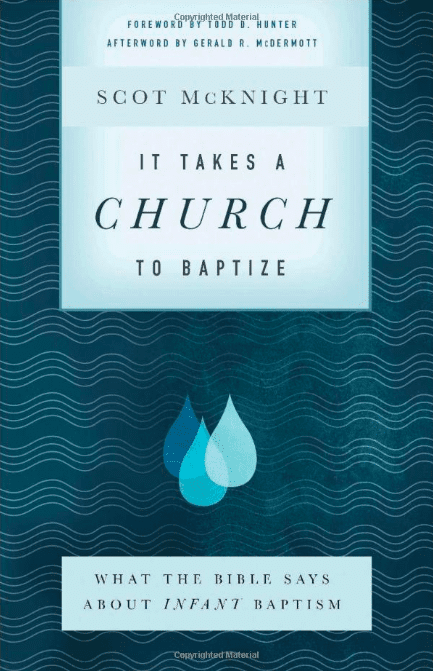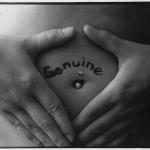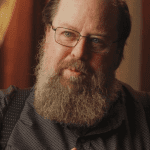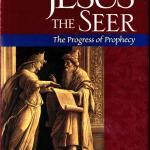 Reading: is it reading if you are listening? Betsy Robinson:
Reading: is it reading if you are listening? Betsy Robinson:
According to an Edison Research consumer survey, 65% of audiobook listeners imbibe books while driving; 52% while relaxing into sleep; and 45% while doing housework or chores. According to “The Brain and Reading,” an article by cognitive psychologist Sebastian Wren (published by the Southwest Educational Development Laboratory), reading uses three major sections of the brain: the occipital cortex, where we visualize; the frontal lobe, where we process meaning; and the temporal lobe, where we process sound—our very own internal sound inside our own craniums. Whereas listening activates only two sections of the brain: temporal and frontal lobes.
This bodes well for people who are driving: at least they are not distracting their brains with inner visions while “reading,” but nor are they enjoying the full-sensory and gloriously autonomous experience of a direct hit from words on a page.
On second thought, real reading will never be replaced by listening. That would be just silly, right?
[Really, Betsy Robinson, what do you think the vast majority of people did in the ancient world? Writing emerged from speech, not speech from writing. In the beginning was the spoken word and the listening ear.]
Speaking of reading, there’s nothing like the ancient poets:
In 1942, the classicist Edith Hamilton acknowledged the “dark spots” which encroach upon the worlds of Greek myth. Reading ancient poetry today makes you realize how those dark spots have grown. They may be sinister, but like black holes, they suck you in. They are timely reminders of the continuing power of classical verse.
There is nothing like ancient poetry for making you reassess your priorities. Homer, Virgil, and Ovidcan make you feel small and insignificant, but those feelings tend to pass and are worth enduring for the clarity they bring to the bigger picture. If you only let them in, the poets of ancient Greece and Rome can bring the kind of life you are living and person you want to be into sharper focus. They are surprisingly adept at cutting through the noise of modern life.
Ovid captures the zeitgeist better than any contemporary writer I know. It’s remarkable, considering he died in the early first century, but his words have taken on new significance in the past few years. Where his Metamorphoses once seemed strange and fantastical, with their stories of girls turning into trees and sculptures transforming into living flesh, they now read like an entree to conversations of human fluidity.
A young man named Actaeon is out hunting when he stumbles upon the goddess Diana bathing. In her fury, the deity turns him into a stag. Unable to feel at home in his former palace or the woods with other animals—“shame impeded one route and fear the other”—Actaeon is torn apart by his hunting dogs and sense of displacement. There has never been a better description of what it’s like to be uncomfortable in your own skin. Other characters in the Metamorphoses are more fortunate. They change form to better manifest who they really are.
The anguish of Actaeon suggests to me that escapism shouldn’t be the primary reason for reading ancient poetry today. For sure, there’s diversion and joy to be found in the drinking poems of Horace—nunc est bibendum!—or the Cyclops-haunted adventures of Odysseus. Virgil even provides a lively debate on the virtues of the countryside relative to the city. Perfect for the daily commute. But it’s when the poets turn to their struggles and political angst that their voices feel most modern. Read them not for escapism but for the reverse: They found the words to express the dark spots we’re still facing today.
The Pope decides the death penalty is always wrong and Rod Dreher doesn’t like it:
So, today, there is no “if” about it: Pope Francis has said flat-out that the death penalty is immoral, and has ordered the Catechism to be written to reflect this new teaching. As of this morning, the Catechism now reads:
2267. Recourse to the death penalty on the part of legitimate authority, following a fair trial, was long considered an appropriate response to the gravity of certain crimes and an acceptable, albeit extreme, means of safeguarding the common good.
Today, however, there is an increasing awareness that the dignity of the person is not lost even after the commission of very serious crimes. In addition, a new understanding has emerged of the significance of penal sanctions imposed by the state.
Lastly, more effective systems of detention have been developed, which ensure the due protection of citizens but, at the same time, do not definitively deprive the guilty of the possibility of redemption.
Consequently, the Church teaches, in the light of the Gospel, that “the death penalty is inadmissible because it is an attack on the inviolability and dignity of the person”,[1] and she works with determination for its abolition worldwide.
It seems to me that the Pope has crossed a bright line. He is denying, for the first time in nearly two millennia of Catholic teaching, and in direct contradiction to the Fathers of the Church, that the state has the right to impose capital punishment. That’s a meaningful difference from saying that the state has that right, but shouldn’t use it.
Even if you disfavor the death penalty, understand what this means: this Pope has claimed forthrightly that the Catholic Church taught error, but now, at long last, he has set the Church straight. From a traditional point of view, though, this means that the Pope is teaching error.
This. Is. Big.
Who’s got some scutoids?
We’ve got circles, squares, triangles and all the ‘gons — but, Spanish scientists say we’re missing one: the scutoid.
Researchers from the University of Seville found these “twisted prisms” in nature, more specifically within the cells that make up skin and line many organs. Scutoids are the true shape of epithelial cells that protect organisms against infections and take in nutrients, they say.
These “blocks” were previously represented as prism-shaped, but research published in the peer-reviewed journal Nature Communications suggests they have a specific curve and look unlike any other known shape. The researchers observed the structure in fruitflies and zebrafish.
The scutoid is six-sided at the top, five-sided on the bottom with one triangular side. Why it has been so complex to define is because epithelial cells must move and join together to organize themselves “and give the organs their final shape,” University of Seville Biology faculty teacher Luisma Escudero said in a release.
The researchers named the shape after a similar design in the thorax of some beetles.
Next, the researchers plan to examine the molecules that cause the shape.
Why no mention of global warming?
A record-breaking heat wave killed 65 people in Japan this week, just weeks after record flooding there killed more than 200. Record-breaking heat is also wreaking havoc in California, where the wildfire season is already worse than usual. In Greece, fast-moving fires have killed at least 80 people, and Sweden is struggling to contain more than 50 fires amid its worst drought in 74 years. Both countries have experienced all-time record-breaking temperatures this summer, as has most of the rest of the world.
Is this climate change, or merely Mother Nature? The science is clear: Heat-trapping greenhouse gases have artificially increased the average temperature across the globe, making extreme heateventsmore likely. This has also increased the risk of frequent and more devastating wildfires, as prolonged heat dries soil and turns vegetation into tinder.
And yet, despite these facts, there’s no climate connection to be found in much news coverage of extreme weather events across the globe—even in historically climate-conscious outlets like NPR and The New York Times. These omissions, critics say, can affect how Americans view global warming and its impact on their lives.
Major broadcast TV networks are the most glaring offenders. Media Matters reviewed 127 segments on the global heat wave that aired on ABC, CBS, and NBC this summer, and found that only one, on CBS This Morning, mentioned the connection between climate change and extreme heat. This fits a long-running pattern. As Media Matters noted, its latest annual study of broadcast coverage found that “during the height of hurricane season in 2017, neither ABC nor NBC aired a single segment on their morning, evening, or Sunday news shows that mentioned the link between climate change and hurricanes.”
Legacy print and radio news outlets are generally much better at connecting these dots. In the last five years, the Times, NPR, and The Washington Post have built large teams of reporters dedicated to explaining climate science, dissecting climate policy, and showing how global warming affects communities. But when covering extreme weather across the globe, the outlets don’t often include references to climate change. [HT: JS]
FORT MYERS, Fla. – The number of dead manatees and sea turtles continues to climb as red tide strangles the life out of coastal Southwest Florida waters.
Bloom conditions started in November, and 400 stranded and dead sea turtles have been pulled from the waters surrounding Lee, Collier, Charlotte and Sarasota counties.
A manatee that probably died because of red tide poisoning was retrieved from the Cape Coral Yacht Club on Tuesday while hundreds of residents and visitors were expressing their anger with the U.S. Army Corps of Engineers at a meeting nearby.
“There was one dead female manatee,” said Michelle Kerr, spokeswoman for the Florida Fish and Wildlife Conservation Commission. “The cause of death is not determined yet, but it was found in a location with high concentrations of red tide. There was speculation that the manatee had a baby, a calf with her. She did not. She was actually found in a mating herd.”
Michael Egnor: [HT: JS]
How would our lives or our society be different if we found that our mind was merely the product of our material brain – and that our every decision was determined, with no free will?
The cornerstone of totalitarianism, according to Hannah Arendt, is the denial of free will. Under the visions of Communism and Nazism, we are mere instruments of historical forces, not individual free agents who can choose good or evil.
Without free will, we cannot be guilty in an individual sense. But we also cannot be innocent. Neither the Jews under Hitler nor Kulak farmers under Stalin were killed because they were individually at fault. Their guilt was assigned to them according to their type, and accordingly they were exterminated to hasten a natural process, whether the purification of the race or the dictatorship of the proletariat.
By contrast, the classical understanding of human nature is that we are free beings not subject to determinism. This understanding is the indispensable basis for human liberty and dignity. It is indispensable, too, for simply making sense of the world around us: among other things, for making sense of Katie.
I see her in my office each year. She is thriving: headstrong and bright. Her mother is exasperated, and, after seventeen years, still surprised. So am I.
There is much about the brain and the mind that I don’t understand. But neuroscience tells a consistent story. There is a part of Katie’s mind that is not her brain. She is more than that. She can reason and she can choose. There is a part of her that is immaterial – the part that Sperry couldn’t split, that Penfield couldn’t reach, and that Libet couldn’t find with his electrodes. There is a part of Katie that didn’t show up on those CAT scans when she was born.
Katie, like you and me, has a soul.















